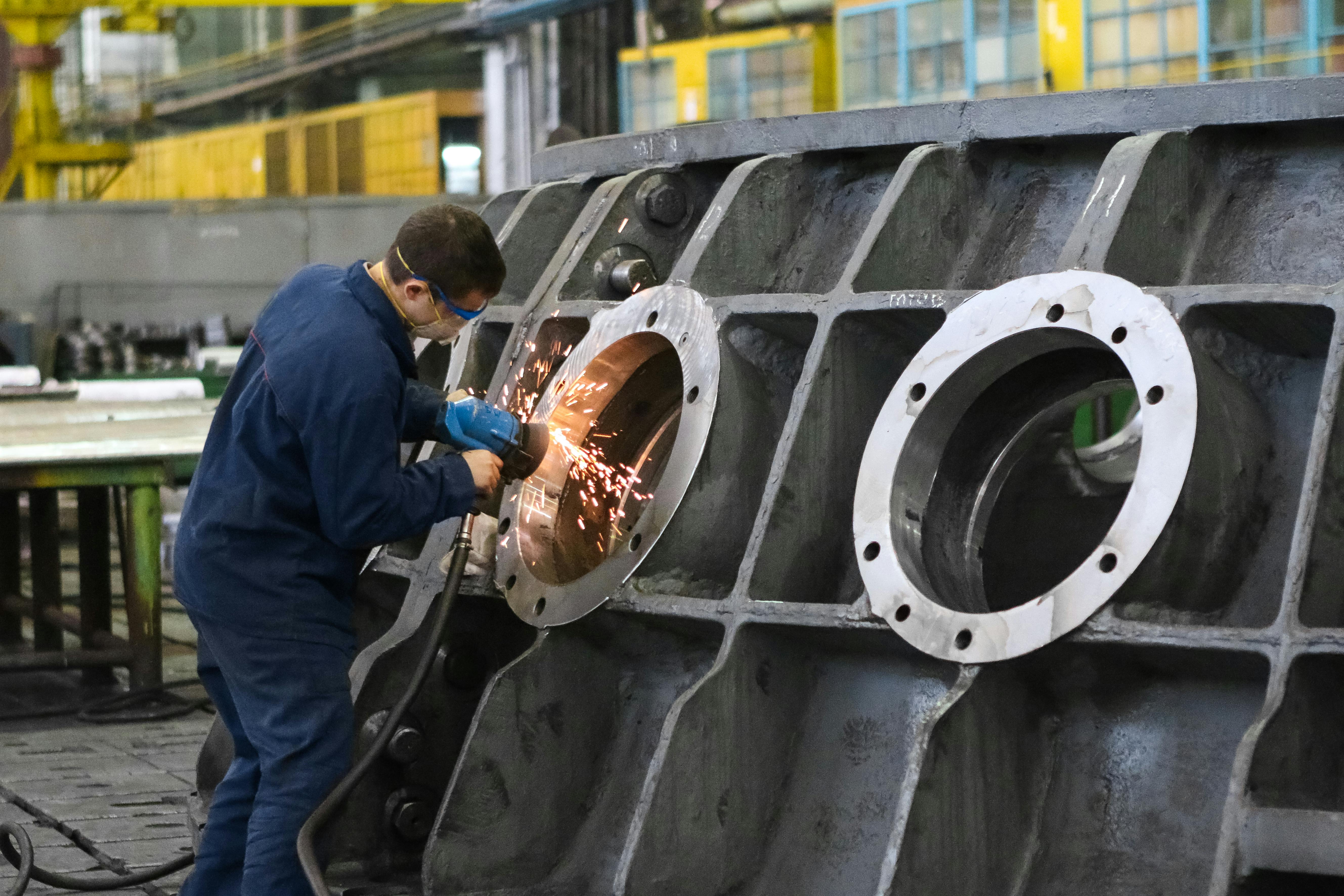Recruiting in the manufacturing industry has never been more challenging. Talent pipelines are shrinking, hiring expectations are shifting, and competition for skilled workers is intense. Companies that rely on outdated hiring methods will struggle to keep up.
Steve Melfi, senior manager of global talent acquisition at Nordson, has seen manufacturing hiring evolve firsthand. With 30 years in the industry, he has experienced the shift from agency recruiting to in-house talent acquisition. Today, he is leveraging hireEZ to address the industry’s most pressing hiring challenges.
The Evolution of Manufacturing Recruitment
In the 1990s, manufacturing companies relied on outside recruiting agencies to fill positions. By the late ‘90s, companies began centralizing recruitment efforts, recognizing the need to build stronger talent pipelines in-house.
That shift has accelerated. Today, recruiting in manufacturing is no longer just about filling jobs. It requires data, AI, automation, and predictive hiring insights. Companies that adapt to these tools will stay ahead, while those relying on traditional job postings risk falling behind.
Hiring Challenges in Manufacturing
Manufacturing recruiters face multiple obstacles, and Steve knows them well.
"When you're a global company, you have locations that might not be in the most attractive or populated areas," he said. "The challenge is finding talent within a 50-mile radius who can commute or getting people to relocate. Then there’s the expectation for hybrid or remote work—when in manufacturing, you need people on-site."
Beyond location challenges, the industry is facing a major skills gap. As experienced workers retire, fewer young professionals are entering manufacturing careers. The demand for specialized workers is increasing, yet the available talent pool is shrinking. Posting a job and waiting for applicants is no longer an effective strategy.
To address these issues, Steve relies on hireEZ.
How hireEZ Helps Nordson Overcome Hiring Challenges
Steve has made hireEZ a key part of Nordson’s recruiting strategy.
"I was looking for ways for my recruiters to be more like talent advisors," he said. "So how do you do that? You do that with knowledge, data, and understanding the talent landscape. You’ve got to bring analytics into your recruitment strategies. We’re not just searching for talent, we’re understanding the talent landscape before we even begin a search."
With hireEZ, Steve and his team analyze competitor hiring trends, identify emerging talent hotspots, and adjust recruiting strategies before challenges arise. Instead of relying on guesswork, they use real-time market intelligence to shape their approach.
Changing the Hiring Conversation with Data
One of the biggest hiring roadblocks isn’t just finding candidates—it’s aligning hiring managers' expectations with market realities.
"The biggest problem in in-house recruiting, especially in manufacturing, is that everyone is in a hurry," Steve said. "They start the search, go 30 or 45 days, and then realize they can’t find the right person or they disagree on candidates. But the real issue is that they didn’t take the time upfront to strategize properly."
By using hireEZ’s market intelligence, Steve’s team can set realistic expectations early in the process.
During a recent search for an HR business partner in Swainsboro, Georgia, hireEZ data revealed that the local talent pool was extremely small. Instead of wasting time, Steve’s team used data to guide hiring managers toward alternative approaches.
"We sat with the HR director and analyzed ways to expand the search," he said. "Could we consider an HR generalist moving up? Could we offer a hybrid schedule? We reviewed local manufacturing employers, salary trends, and talent availability to refine our strategy before launching the search."
With this approach, recruiters gained confidence in their recommendations, and hiring managers had a clearer understanding of market realities, leading to faster and more effective hiring decisions.
Technology as a Competitive Advantage in Manufacturing Recruiting
Steve believes AI and automation are essential for manufacturing companies that want to stay ahead. Beyond sourcing, hireEZ helps Nordson streamline outreach by automating messaging sequences, ensuring timely follow-ups without recruiters tracking each interaction manually.
"How do you engage candidates more effectively?" he said. "I wanted a tool that was going to be very aggressive in finding candidates and engaging them quickly. With hireEZ, we can automate outreach, customize AI-generated messages, and track response rates. That’s a game-changer."
The Future of Manufacturing Recruiting
The competition for manufacturing talent will only intensify. More manufacturing jobs are returning to the U.S., and retirements continue to shrink the talent pool. Steve believes speed will be the key to securing top talent.
"You’re going to see a fight for top talent," he said. "And that’s where it’s going to come down to speed. My biggest advice is to continue leveraging technology. Recruiting isn’t just about taking job orders. It’s about using data to guide hiring strategies and making sure your company is positioned for long-term success."
As manufacturing recruiting evolves, companies that embrace AI-powered platforms like hireEZ are not just hiring for today—they are building the workforce of the future.
Key Takeaways
- Recruiting in manufacturing is more challenging than ever. Traditional hiring methods are no longer effective as talent pipelines shrink and skills gaps widen.
- Market intelligence is key to effective hiring. Using real-time data from hireEZ, recruiters can set hiring managers’ expectations early, preventing delays and misalignment.
- AI and automation provide a competitive edge. Companies that use AI-driven sourcing and automated outreach can engage candidates faster and fill roles more efficiently.
- Speed is critical in manufacturing recruiting. The companies that identify and secure talent quickly will be the ones that thrive in the increasingly competitive hiring landscape.
- Recruiters must become strategic advisors. Steve emphasizes the importance of using data to guide recruitment strategies and ensure long-term hiring success.
By embracing AI, automation, and data-driven decision-making, manufacturing companies can transform their talent acquisition strategies and stay ahead in an evolving industry.






